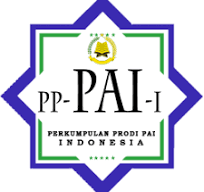ETIKA PENDIDIK DAN PESERTA DIDIK DALAM PERSPEKTIF AL GHOZALI DAN IBN MISKAWAIH
DOI:
https://doi.org/10.54069/attaqwa.v17i02.156Keywords:
Ethics of Educators, Learners, Al Ghozali, Ibn MiskawaihAbstract
This research aims to describe and analyze the ethics of educators and learners according to the perspective of Al Ghozali in the book of Ihya' Ulumuddin and Ibn Miskawaih in the book of Tahdzibul Akhlaq wa Thathirul Araq to develop ethical concepts in the field of education and as an effort to form the next generation of the nation that has ethics in accordance with educational goals. This research uses a qualitative descriptive approach and the type of research used is literature or library research. The technique of data collection is looking for data about things or variables in the form of notes, journals, books and others as such. Then the data is collected in the form of written records/ data. While in the data analysis used is content analysis (Content Analysis). The study of the thoughts of Al Ghozali and Ibn Miskawaih will certainly always be interesting, although both are both figures from the same religion, Namely Islam, but there is still an interesting side that concerns the similarities and differences between the two. This paper examines how the ethics of educators and learners according to Al Ghozali and Ibn Miskawaih. The ethics of educators that are strongly emphasized by Al Ghazali and Ibn Miskawaih is about the practice of science, both those that have not been and those that have been taught to learners. As for the learners themselves these two figures prioritize about the cleanliness of the soul and heart of learners from things or things that can prevent the entry of a science.
Downloads
References
Bargerol, Caron. “Sufism’s Role in Al-Ghazali’s First Crisis of Knowledge.” Medieval Encounters 9, no. 1 (2003).
Bukhory, Imam. Shahih Bukhary, Juz IV. Beirut: Darul Fikr, 1995.
Darmono, Al. “Konsep Pendidik Dan Peserta Didik Dalam Perspektif Ibn Miskawaih Dan Al Mawardi (Suatu Studi Komparatif).” Journal of Chemical Information and Modeling 53, no. 9 (2013): 1689–99.
Ghozali, Muhammad Al. Ihya’ Ulumuddin. Libanon: Bairut, 2005.
Hakim, Abdul. “Filsafat Etika Ibn Miskawaih.” Jurnal Ilmiah Ilmu Ushuluddin 13, no. 2 (2016): 135. https://doi.org/10.18592/jiu.v13i2.727.
Hamim, Nur. “Pendidikan Akhlak: Komparasi Konsep Pendidikan Ibnu Miskawaih Dan Al-Ghazali.” Ulumuna 18, no. 1 (2017): 21–40. https://doi.org/10.20414/ujis.v18i1.151.
Ikhsanuddin, Muhammad, and Amrulloh Amrulloh. “Etika Guru Dan Murid Perspektif KH. Hasyim Asy’ari Dan Undang-Undang Guru Dan Dosen.” Jurnal Pendidikan Islam 3, no. 2 (2019): 331–55.
Indriyanti, Tri, Khairil Ikhsan Siregar, and Zulkifli Lubis. “Etika Interaksi Guru Dan Murid Menurut Perspektif Imam Al Ghazali.” Jurnal Online Studi Al-Qur’an 11, no. 2 (2017): 129–44. https://doi.org/10.21009/jsq.011.2.03.
Khadijah, I. “Etika Guru Dan Murid Dalam Pendidikan Perspektif Imam Al-Ghazali.” MENDIDIK: Jurnal Kajian Pendidikan Dan Pengajaran 5, no. 1 (2019): 89–102. https://doi.org/10.30653/003.201951.60.
Latuapo, R. “Etika Interaksi Guru Dan Peserta Didik Di Kelas Dalam Pendidikan Islam.” Horizon Pendidikan, 2019, 243–46.
Lestari, Ayu. “Konsep Guru Dan Anak Didik Menurut Ibnu Maskawaih.” Jurnal Tarbawi 14, no. 2 (2017).
Maya, Rahendra. “Karakter (Adab) Guru Dan Murid Perspektif Ibn Jama’ah Al-Syâfi’î.” Jurnal Edukasi Islami 6, no. 12 (2017): 21–43.
Miskawaih, Ibn. Tahdhib Al-Akhl?q Wa Tathir Al-‘Araq. Bayr?t: Mansh?rat D?r al-Maktabah al- Hayat, 1983.
Muhammad, Devy Habibi, Agustiarini Eka Deasari, and Aries Dirgayunita. “Pendidikan Anak Usia Dini Berbasis Psikologi Islam.” Jurnal Pendidikan Islam Al-Ilmi 4, no. 1 (2021): 21–33. https://doi.org/10.32529/al-ilmi.v4i1.821.
Nata, Abudin. Pemikiran Para Tokoh Pendidikan Islam. Jakarta: PT Raja Grafindo Persada, 2001.
Nurohman. “Konsep Pendidikan Al-Ghazali Dan Relevansinya Dalam Sistem Pendidikan Di Indonesia.” As-Salam: Jurnal Studi Hukum Islam & Pendidikan 9, no. 1 (2020): 41–60. https://doi.org/10.51226/assalam.v9i1.189.
Prasetiya, Benny. “Dialektika Pendidikan Akhlak Dalam Pandangan Ibnu Miskawaih Dan Al-Gazali.” Intiqad: Jurnal Agama Dan Pendidikan Islam 10, no. 2 (2018): 249–67. https://doi.org/10.30596/intiqad.v10i2.2381.
Pratama, Ervhan Saleh. “Hubungan Guru Dan Murid Dalam Pendidikan Agama Islam.” Tadabbur?: Jurnal Perdaban Islam 2, no. 2 (2020): 333–48.
Rahman, Syakur. “Etika Berkomunikasi Guru Dan Peserta Didik Menurut Ajaran Agama Islam.” Jurnal Ilmiah Iqra’ 3, no. 1 (2018): 53–67. https://doi.org/10.30984/jii.v3i1.549.
Ramli, M. “Hakikat Pendidikan Dan Peserta Didik.” Tarbiyah Islamiyah 5, no. 1 (2015): 61–85.
Suriadi, Suriadi. “Etika Interaksi Edukatif Guru Dan Murid Menurut Perspektif Syaikh ?Abd Al-?amad Al-Falimb?n?.” DAYAH: Journal of Islamic Education 1, no. 2 (2018): 145. https://doi.org/10.22373/jie.v1i2.2928.
Suryadarma, Yoke, and Ahmad Hifdzil Haq. “Pendidikan Akhlak Menurut Imam Al-Ghazali.” At-Ta’dib 10, no. 2 (2015): 362–81.
Susandi, Ari, Izzuddin Ibnu, Abdis Salam, and Mohammad Arifin. “THE ROLE OF FOSTER PARENTS IN IMPLEMENTING CHARACTER EDUCATION?: Case Study of Children of Indonesian Workers in Puspan Village Maron District Probolinggo Regency” 21, no. 1 (2021): 15–22.
Zulfahmi Syamsuddin, and Wan Hasmah Wan Mamat. “Perbandingan Pemikiran Konsep Akhlak Al-Ghazali Dan Ibn Miskawayh Dalam Aspek Intelek.” The Online Journal of Islamic Education 2, no. 2 (2014): 107–19.
Downloads
Published
How to Cite
Issue
Section
License
Copyright (c) 2021 M. Basori Alwi

This work is licensed under a Creative Commons Attribution-NonCommercial 4.0 International License.





